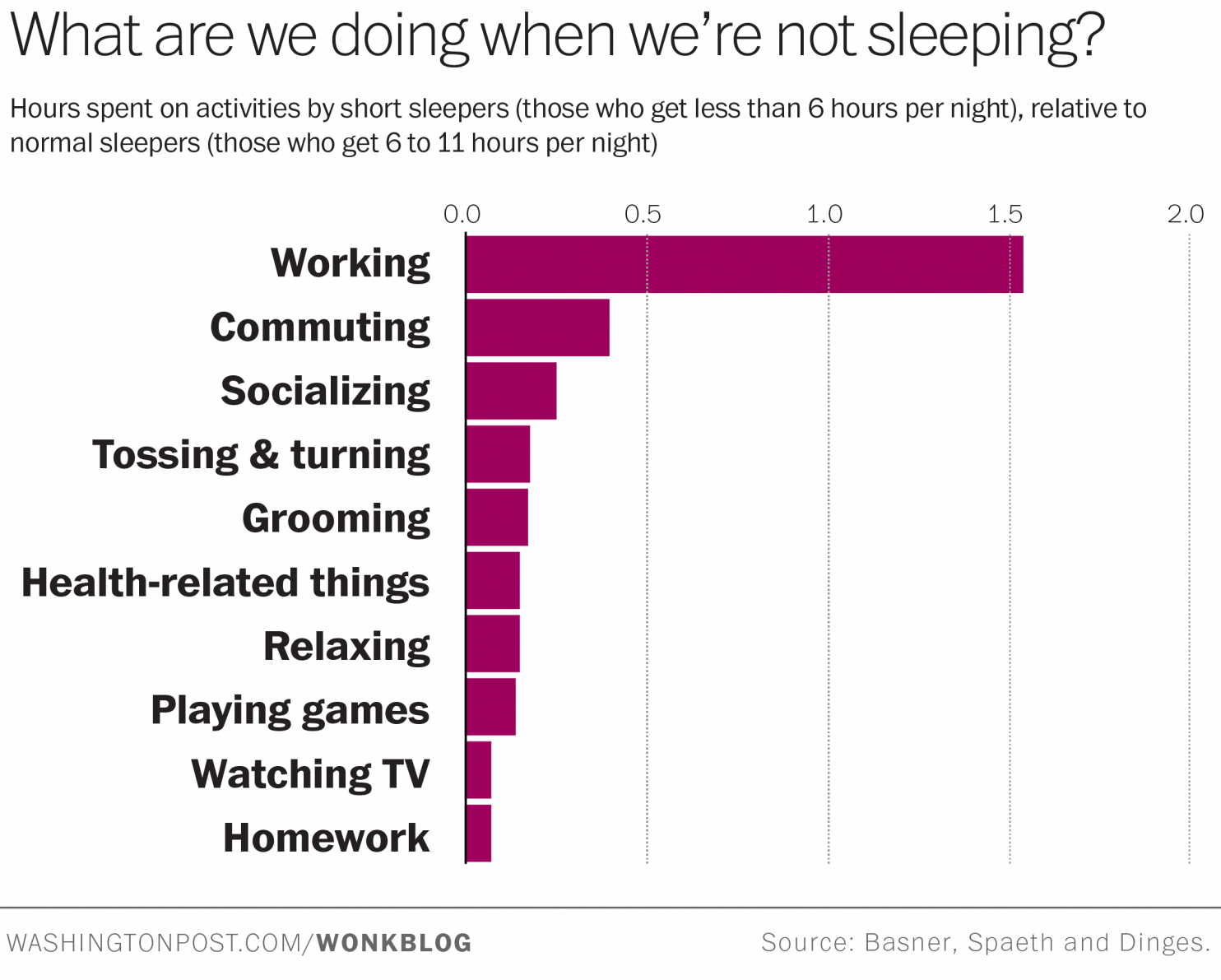
US workers sacrifice sleep for work, for commuting, socializing and the practice is deadly.
A new study shows that paid work time is the primary waking activity exchanged for sleep and suggests that chronic sleep loss potentially could be prevented by strategies that make work start times more flexible.
Not enough sleep affects the ability of U.S. adults to carry out daily activities. The National Sleep Foundation suggests that adults need 7--9 hours of sleep per night; shorter and longer sleep durations have been associated with increased morbidity and mortality.
To assess the prevalence of short sleep duration (<7 hours on weekday or workday nights) and its perceived effect on daily activities, CDC analyzed data from the National Health and Nutrition Examination Survey. The report summarizes the results, which found that 37.1% of U.S. adults reported regularly sleeping <7 hours per night, similar to the 35.3% reporting <7 hours of sleep in a 24-hour period in another report using self-reported data (2). Short sleep duration was more common among adults aged 20--39 years (37.0%) or 40--59 years (40.3%) than among adults aged ≥60 years (32.0%), and more common among non-Hispanic blacks (53.0%) than among non-Hispanic whites (34.5%), Mexican Americans (35.2%), and persons of other races (41.7%).
Among six sleep-related difficulties assessed, the most prevalent was not being able to concentrate on doing things, reported by 23.2% of U.S. adults. Perceived sleep-related difficulties were significantly more likely among persons reporting <7 hours of sleep than among those reporting 7--9 hours of sleep. Based on these findings, at least one third of U.S. residents do not get enough sleep on a regular basis, and this impairs their ability to perform daily tasks. Chronic sleep deprivation also has a cumulative effect on mental and physical well-being and can exacerbate chronic diseases.